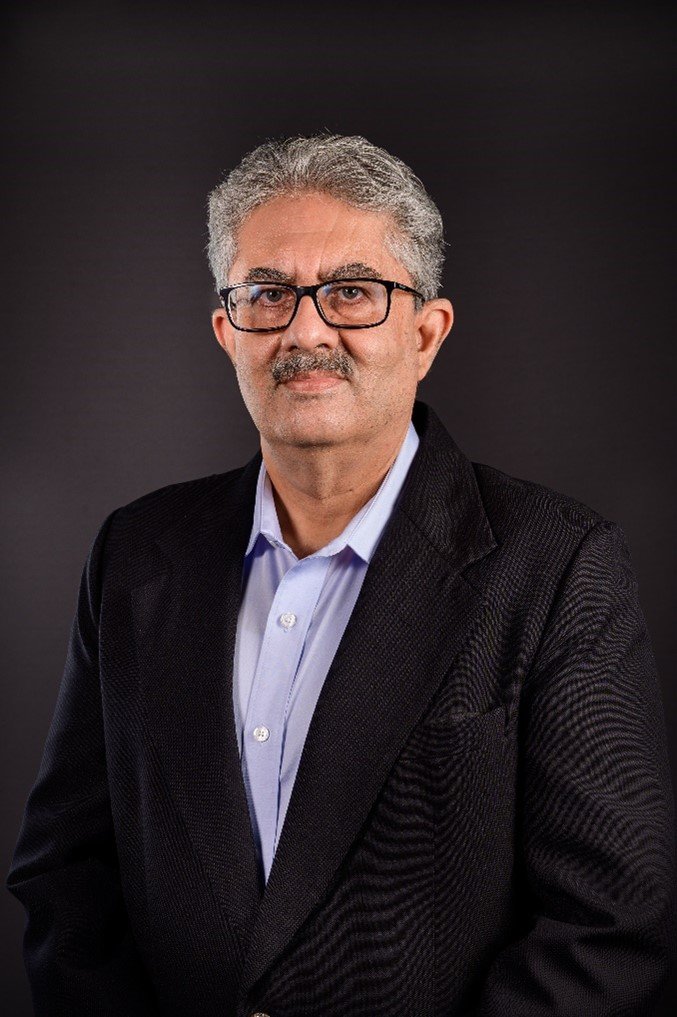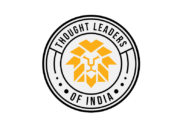Hear my Story
Madhav Thapar
Madhav Thapar is the Vice President leading South Asia, Middle East and Africa for C.H. Robinson Global Forwarding. He joined C.H. Robinson in 2018, and prior to that had over three decades of Senior Management experience in C level positions with leading multinationals in the field of global logistics across the Indian Subcontinent, Asia Pacific and Africa
Madhav is currently responsible for driving growth and continued alignment across the region. An avid reader himself who loves sports and travel, Madhav is also a published author.

1.How was your beginning
- Family
- Education
I grew up in a small town in the Himalayan foothills- Dehradun, now the capital of Uttarakhand state, but at that time more of a lovely but sleepy retirement destination famous for its educational and defence institutions and litchee orchards.My family had a small business, but it was my dream to be a writer and so I pursued a master’s degree in English Literature. However, the practicality of the economic situation of the family meant that I had to abandon this dream at an early stage and try to earn a living by more conventional means. I did return to my first love of writing many decades later inspired by my daughters to do so and succeeded in telling some of the stories that are inside me, but that is a different topic. For reference however are my two fiction novels ‘A Friend Like Karna’ and ‘The Times We Live in’ which were published digitally and in print worldwide in 2017 and 2018 respectively.
2. How did you get your first job / Started your organisation
My first job happened by accident. I was in the typically ‘confused’ phase between completing my college education and wondering what to do next. Family pressures were towards joining the home business and getting settled but I was not inclined towards either. I took a short break to visit with my maternal uncle and aunt in Kolkatta and in a social interaction got introduced to a very senior gentleman whom it transpired was the Resident Director for NEI Projects Limited ( now a division of Rolls Royce) a UK based consortium that was building one of India’s largest Thermal Power Plants at a remote site called Rihand.Mr Baliga( his name) asked me to see him in Delhi on my way back from Kolkatta to Dehradun, and when I did he handed me over an appointment letter to start as a trainee in the organisation at Kolkatta for a princely salary of INR 2000/- per month. Much against any logic and of course family resistance I accepted the offer and one week later started my tryst with the logistics industry which will soon be four decades in duration.
3. Please describe your initial years of struggle. Any failures that you vividly remember?
When I joined NEI , I had visions of being in a swanky office environment , working a 5 day week and enjoying all the perks of club life and travel I had seen my uncle (with whom I stayed during my initial year on the job and who was my role model) enjoy as a senior manager with ACC , not to mention the power and decision making that came with it I soon got a reality check. My first ‘office” was a leaky shed in the Kolkatta docks with a missing slat in the roof which served multiple purposes: Ventilation, rain in the monsoon and strong sun for the rest of the year. Working hours were 12 *6 and 6 more on Sundays and all public holidays as well. “Decision Making” was to inspect the lashing on truck loads and sign challans releasing the same. For variety when one of the ships carrying our material docked, I got to clamber into the holds (much to the disapproval of the ships captains) to search for unmanifested cases! It was a period I often thought of quitting, but by then I had no where to go back to and desperation gave birth to resilience and a hunger to do well- the two qualities that have sustained me through my career.
4.Describe a turning point in your professional life.
One year into my job, I got two strange assignments within a span of weeks first was to locate a 30-metre-long header that records showed had been despatched from Glasgow, shipped on board but never arrived in any Indian Port or the Rihand Site. This search was to take me first to all the major ports the vessel had called on the Indian coastline – most excitingly for me Mumbai (then Bombay) and Chennai (Then Madras). Big coastal cities I had heard of but for someone born in the landlocked hills, fascinating because I would see the ocean for the first time outside of Noddy Books. I remember sitting in coffee shop of the Oberoi Hotel, where I had been put up quite simply because no one at my level had travelled earlier and all expats from my company stayed there so admin knew no better and staring in fascination at the Arabian sea. Sadly, I could not find the header at the Ports and so I then was put into an Ambassador car and was compelled to traverse the jungles of Bihar and UP to check all the rail sidings between Kolkatta and Rihand! Quite a journey in contrasts! Ultimately it turned out the header was mislabelled and was still in the UK, but by then I had experienced more travel then I had any opportunity for through my entire life until then The second assignment that came my way was when an urgent piece of material, packed in tiny case came to be urgently required at the Site, and with the vessel delayed into Kolkata, it was decided to intercept the shipment at the first port of all (Mumbai again) and see if we could pull out the same. This was a logistical challenge of the greatest order at the time. First of all, Customs had to be convinced to grant permission to allow the cargo to be cleared in Mumbai instead of the designated Customs House in Kolkatta and not only were they not inclined to do so (because it meant loss of duty revenue- the piece being small in size but high in value) they certainly did not work at the pace required to issue orders within the short span of the vessels call in Mumbai. The consequence was delaying the vessel which would of course cost a fortune. Then fate played in my favour. There was a storm and a berthing delay which gave me just the extra window to get the permission through. But the challenge was not over. Now the problem was of finding the small package in the gigantic hold (a real needle in the haystack situation) and convincing the master of the vessel to disrupt the unloading sequence to get this out first. I knew that since Kolkatta was the last port of discharge the package would be near the bottom, so again I clambered down into the depths of the ship (for which I got a huge dressing down later by the captain) and searched by torchlight for the item in question. Once identified, more by luck than design, I knew the only way to get it out was to carry it on deck myself, and so with my legs clasping the precious package and my hands gripping the rope I hauled myself 20 metres out of the hold to the amazed and angry attention of the ships crew, placed the package on board and requested them to put it into the discharge process.
These two incidents and my effectiveness thereof (which as I have said can actually be attributed more to luck coupled with a bit of daring) brought me to the notice of the senior management of the Lemuir Group in Mumbai, the principle clearing and forwarding agents of our Project and the largest logistics providers in India at the time. As the Project tapered of, and with the permission of NEI, Lemuir made me an offer to move to Mumbai as EA to their young Managing Director Snehal Parikh who was in the process of modernizing and restructuring the company. This assignment gave me my first exposure to strategy and from there I took up varied roles right up to becoming the youngest ever Director of the Group and finally a part of the management team when the Group entered a JV with DHL which became my pathway to the C suite in the multinational arena.
Currently I am proud to head C. H Robinson for the SAMA (South Asia , Middle East and Africa region) and as part of the global leadership team for a multi- billion Fortune 500 company I still think often to the early days outlined above and the memories are as vivid as if these incidents had happened very recently.
5. What has been your biggest achievement till date
Leading the transition and the cultural amalgamation of the team from the family-owned environment of Lemuir into the then biggest MNC landscape of DHL as a specific. Most satisfyingly and more in general, being able to recognise talent and build leaders throughout my career and being able to see them achieve great success.
6. What has been one of your life’s biggest learning.
My biggest learning has been to constantly keep learning. To always remain relevant and abreast not only of my own industry and the larger business world, but of what youth is thinking of and how to bring their ideas and energy constantly into the organisation I lead.
7.What would be your advice to someone who aspires to be you.
First of all, no one should aspire to be anyone else, but rather to optimize their own potential and achieve their own destiny. In order to do so it is important to be passionate about one’s vocation, relentless in the pursuit of excellence, resilient when there are failures and humble through all achievements.
